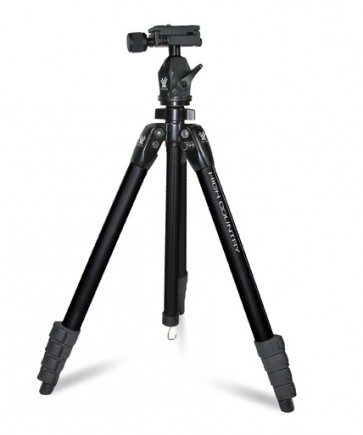CHAPTER 4: ASTRONOMY WITH BINOCULARS
WHY BINOCULARS FOR ASTRONOMY?
Some enthusiasts might argue that a telescope is the only way to look into space. While it is true that telescopes are far better equipped for the night sky, a binocular is more than enough for a night of casual stargazing. Below are some reasons why you should choose binoculars over a telescope for astronomy.
1. Easy to Use Especially for Beginners
As binoculars are easy to use, you can dedicate more of your time trying to learn how to navigate through the night sky instead of finding the right adjustment on a telescope. It is also a great way for someone to “test the waters” to see if astronomy is something they want to pursue as a hobby.
2. A Cheaper Alternative
For a lot of people, spending a lot of money on a telescope is not something that they can afford to do. An alternative for this is to buy a pair of binoculars or just use ones that they already have lying around.
3. Much More Portable to Carry Around
While some binoculars made specifically for stargazing are bulky, they are still much more portable than your average telescope. With a pair of binoculars, you can start your stargazing sessions in places you normally won't go when carrying a telescope.
4. Better Image Depth
With binoculars, you will be viewing the night sky through both of your eyes. Because of how our brains process images, the image from both eyes seen through the binoculars will combine to create a more 3D image with a greater sense of depth.
CHOOSING THE RIGHT PAIR OF BINOCULARS
While you can start viewing the night sky using any pair of binoculars, choosing the right kind will allow you to enhance your viewing experience. Some important factors to consider are the magnification power, objective lens size, and coatings that are applied to the optics of the binoculars.
When buying a pair of binoculars for astronomy, it needs to have large objective lenses (front). This will allow the binoculars to gather more light, providing much brighter images while viewing. A good size would be around 40 - 70mm. You can always go for even larger objective lenses, however, they will be harder to carry around and less comfortable to use. You might even have to use them on a tripod.
As for the magnification, 7 - 15x should be enough for stargazing. If you’re ready, you can even go higher. Just be aware that images from higher magnification will be more sensitive to movement and have a narrower field of view. In some cases, lower magnification is preferred, as it reduces fatigue.
Binoculars that are made specifically for astronomy, would usually have special coatings on their lenses to produce more contrasted images when viewing the night sky. A good example of this is the Celestron SkyMaster Pro 20x80 Astronomy Binocular. The BaK-4 Prisms allow maximum light transmission, and Celestron’s StarBright XLT coatings provide improved contrast for a brighter image.
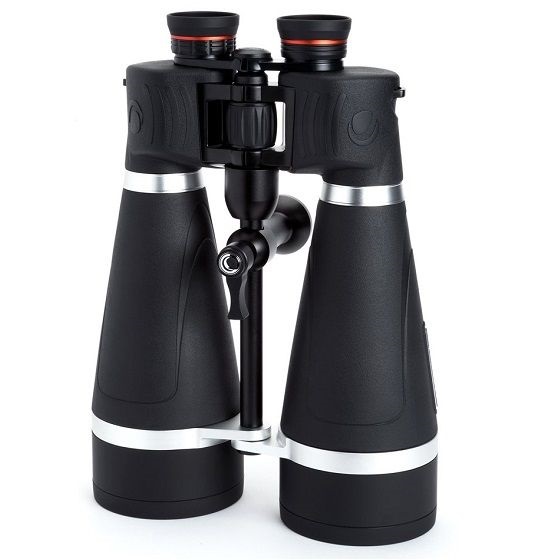
WHAT CAN YOU SEE USING A BINOCULAR
The Moon
The first and easiest thing you can point at in the night sky is the moon. As the moon goes through its usual phases, a line that separates the light and dark sides of the moon called the terminator line will appear. When this happens, you will be able to see the details on the surface of the moon in much greater detail.
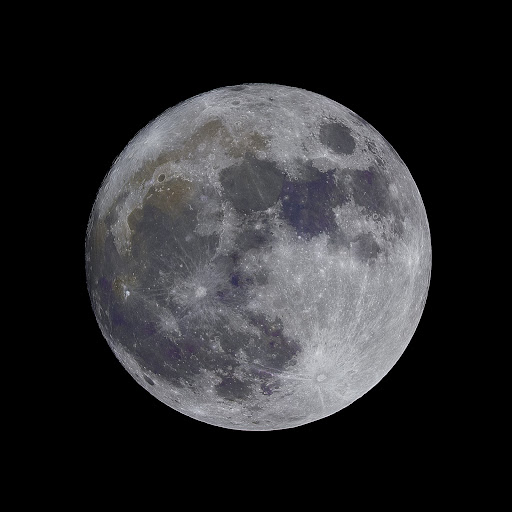 /center>
/center>
The Planets
Viewing the planets through a binocular is possible. However, you will need to do your stargazing sessions in areas with minimal light pollution. To make it easier for you to track the location of different planets, you can use a sky-charting app on your smartphone. Among all of the other planets, Jupiter is the easiest one to spot through a binocular due to its sheer size. Depending on your magnification, you might even be able to see the four moons surrounding it which are Callisto, Ganymede, Europa, and Io.
The Milky Way
The Milky Way used to be visible from any location, but light pollution has made them visible only from a dark night sky with very minimal pollution. When you see the Milky Way for the first time, you won’t be able to make out the individual colours. Instead, it will appear as shades of grey, due to the wavelengths of light expanding over such a massive distance.
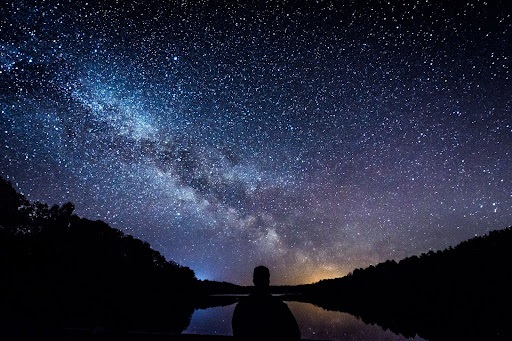
EXTRA ACCESSORIES
Red Light
A red light torch is one of the staple accessories that an astronomer needs. It has been scientifically proven that red light helps us maintain our night vision capabilities after our eyes adapt to the dark environment, allowing us to see more stars in the night sky. Red torches are also useful to help you read star maps and move around in the dark without exposing yourself to bright lights. When getting one, it’s better to get a model with adjustable brightness.
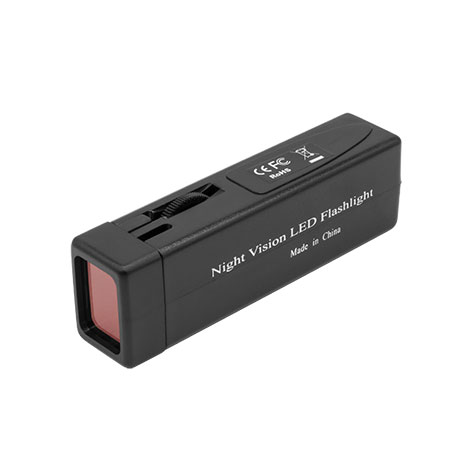
SkyWatcher LED Red Flash Light
Planisphere
For beginners in astronomy, trying to get your bearing in the night sky can be a real challenge. One of the best accessories that you can get to help you better navigate the night sky is the Planisphere. For an average joe, they look like two pieces of circular cardboard cutouts fastened together. But this simple-looking accessory can actually help you identify the bright stars in the night sky at any particular time. Planispheres require a little bit of learning, but in the long run, they are definitely worth it.
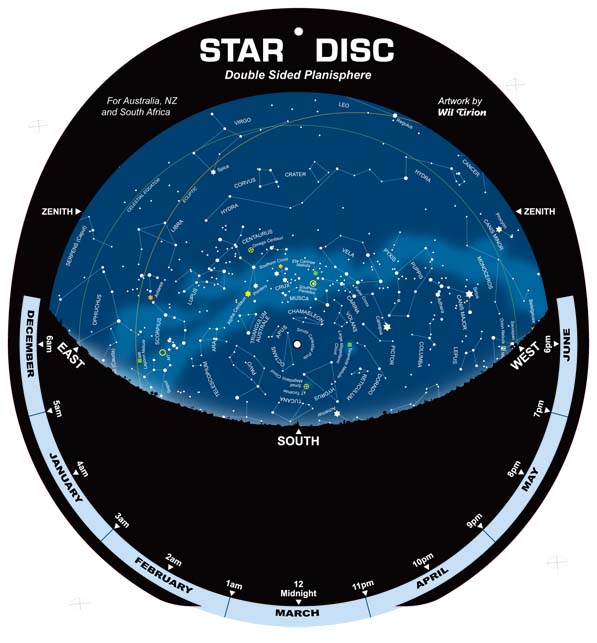
Astrovisuals Planisphere Star Disc
Tripod and Tripod Adapter
If you feel like holding up your binoculars is too tiring, you can always consider placing them on a tripod. However, a standard pair of binoculars would need an adapter that will help them properly sit on a tripod. If you’re planning extended stargazing sessions using binoculars, getting a tripod is a great decision.
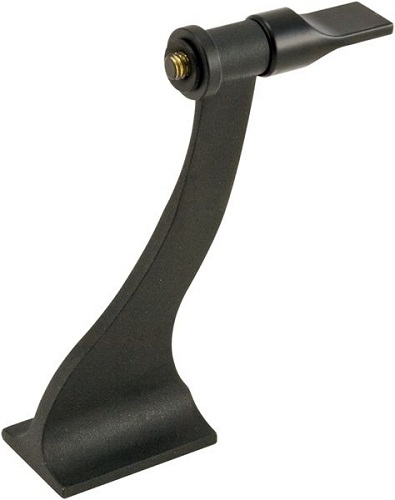
Celestron Binocular Tripod Adapter
For everything binoculars related, feel free to head on to OZScopes and browse through our collection of high-quality binoculars from reputable brands!

